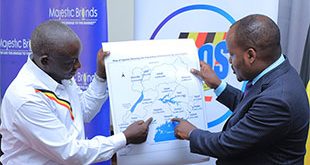
Kampala, Uganda | THE INDEPENDENT | For a very long time, financing for local radio stations – especially those outside the capital city – has been a puzzle that many have struggled to crack.
Now a new Organisation, the East African Radio Services (EARS), seeks to help these radio stations reach out to corporations – local and international – media agencies that place advertisements to help them get business.
Klaas Glenewinkel, the managing director of Media in Cooperation and Transition (MICT), a Germany media NGO and a director in EARS said they had found that one of the biggest issues for that many radio stations in Uganda is that they didn’t know where to start and where to go to get business.
Many are far from the city centre, where most advertisers are based. Others don’t have packaged sales offers that advertisers can consider. He said EARS would help link the advertiser and the radio stations.
EARS is also working with Uganda Radio Network (URN), radio news agency, to help in the reach for these stations. URN has up 90 radio stations signed up for its news. Low funding for radio stations in Uganda is visible in their programming. Many can hardly hire qualified staff or research impact-based programming.
There are 293 radio stations in Uganda and according to Florian Rucket, a consultant, it is hard for any corporation that seeks to run a media campaign countrywide to reach to all of them. EARS would help package these radio stations into regional and national packages which are pitched to advertisers.
The Organisation will aggregate radio stations’ audiences into national and regional packages, which would give advertisers extensive media reach in the country, according to Douglas Mutumba, the Organizations General Manager.
Already, 21 radio stations have signed up to the Organisation. These, according to Mutumba have a reach of up to 70 per cent of the market in the country. He said that they have invested in research and their packages would be based on verifiable data.
The revenue sharing will be determined using a matrix on how much or where the radio station reaches. This means the radio station takes part of the money that the advertiser pays and the Organisation also takes some share on the business it brings.
Radio stations are free to also independently search for business even after signing up with the Organisation.
******
URN
 The Independent Uganda: You get the Truth we Pay the Price
The Independent Uganda: You get the Truth we Pay the Price



